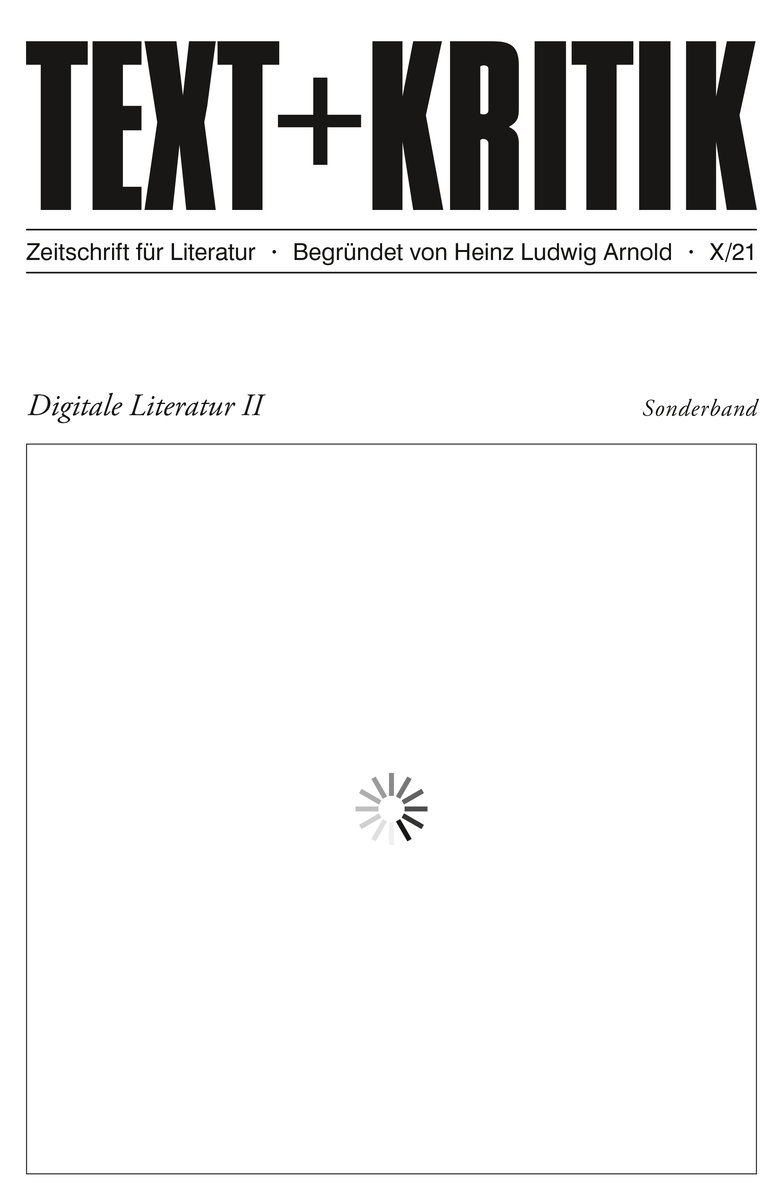Literatur ist so digital wie die Gesellschaft, in der sie stattfindet. Heute sind Rezeption und Literaturproduktion weitestgehend von digitaler Technik bestimmt.Und doch lassen sich Unterschiede ausmachen, inwieweit die unter den Bedingungen einer digital bestimmten Lebenswelt produzierte Literatur auch diese Bedingtheit reflektiert. Im Gegenwartsroman, in dem Digitalität vor allem auf Beschreibungsebene Eingang findet, werden die Parameter klassischer literarischer Form selten angetastet. Weiter gehen Experimente in sozialen Medien, in denen die Tools der Plattformen neue Schreibweisen hervorbringen. Und wieder Bedeutung gewonnen hat jene Tradition, die man genuin digitale Literatur nennen kann und die nicht nur nebenbei und instrumentell digitale Technik verwendet, sondern ihre Werke ganz wesentlich durch Computer, Algorithmen oder neuronale Netze produziert.Der Sonderband schreibt die erste Bestandsaufnahme digitaler Literatur in TEXT+KRITIK aus dem Jahr 2001 fort und hebt die Differenzen und Kontinuitäten hervor, die sich in diesem Feld seitdem ergeben haben. Als Diskussion des State of the Art in technischer wie literarischer Hinsicht ist er eine Momentaufnahme einer im Umbruch befindlichen Literatur.


